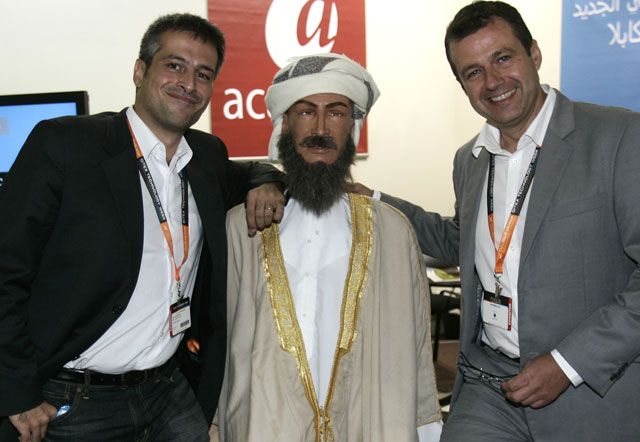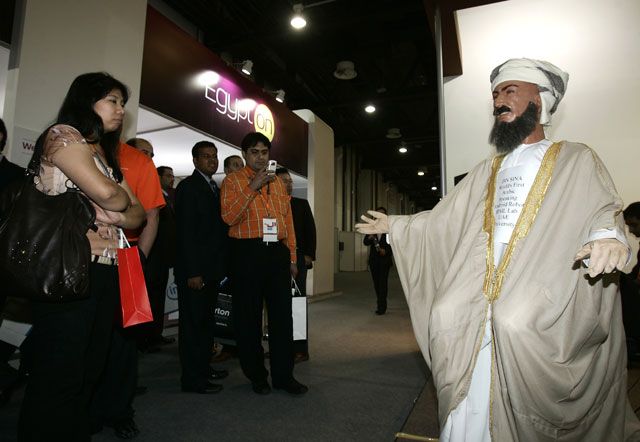Dubai : At first glance, Ibn Sina looks like an average Middle Eastern man sporting a tan, finely trimmed beard and a traditional gotra [Arab headdress] as he bids hello, and his eyes widen as he strikes up a conversation in Arabic with a group of young men in suits.
But those who took a closer look at him at the Gitex Technology Week soon realised they were talking to the world's first Arabic-speaking humanoid robot.
Named after the 11th century Muslim doctor and thinker, the robot was a huge draw at the International Convention and Exhibition Centre booth of Acapela Group, the firm which provided the Arabic-speaking voice for the test humanoid being pioneered by UAE University's Interactive Robots and Media Lab in Al Ain.
Voice software
Nine years in the making, the recorded Arabic voice spoken by Ibn Sina is a new release by France-based Acapela which offers voice software in 25 languages for applications ranging from telecom firms and information services to call centres.
The new voice, called Nizar, is naturally spoken and helps carry on "a conversation with anyone who speaks with Ibn Sina", said Antoine Kauffeisen, Vice-President, Marketing, Acapela.
The robot's lead creator and laboratory director, Dr Nikolaos Mavridis, said Ibn Sina is more than just a computer voice recognition software spitting out a few words. Years of work have been spent bridging the gap between humans and computers to make the relationship cozier, more familiar - more like an old friendship.
Technological breakthroughs at the lab mean that computers can have conversations with humans, prompted by "a number of conversational steps" or cues from the computer.
"It's about bonding, where one of the most important things is shared memories," Mavridis told XPRESS. "It starts within your circle of friends."
A Greek expat and MIT PhD graduate, Mavridis said his experiments are using face recognition, vision and speech to ultimately "enhance long-term human-robot relationships" to make humanoids similar to friends.
Role model
The robot has been named after Ibn Sina as he is a historical figure Arab schoolchildren can relate to, said Dr Nikolaos Mavridis. "Ibn Sina was a scientist, philosopher and doctor and is a very good role model," he said, adding that giving such a modern project the name of a well-known figure "brings attention back to the values of the guy himself".




